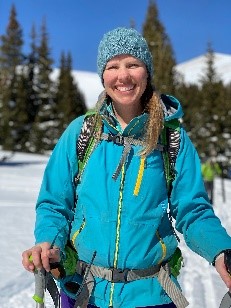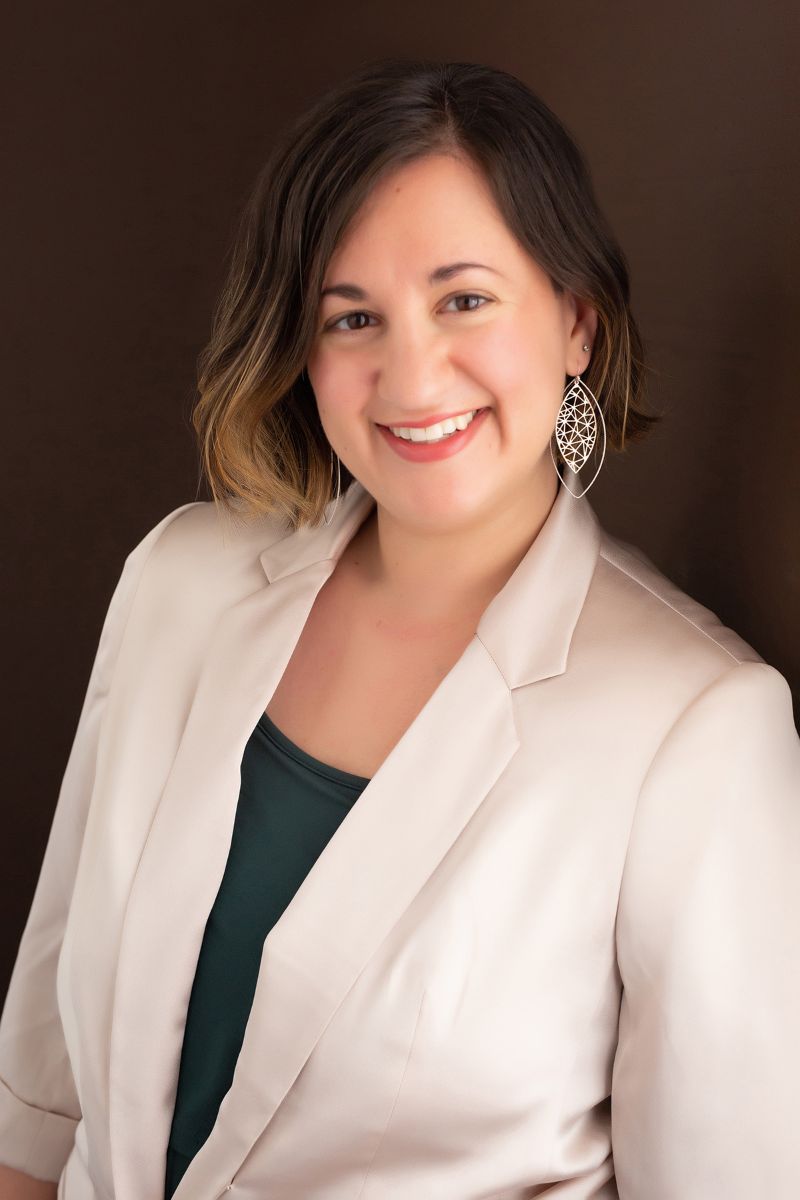
Qualitative data is often more helpful than more structured survey-based data for gaining deep insight into a population or understanding the impact of a new program. However, a scant few nonprofit professionals have experience conducting systematic qualitative analysis. This introductory workshop, “Getting Started with Qualitative Data Analysis,” is designed to provide participants with the fundamental tools and knowledge needed to begin analyzing qualitative data effectively. We will explore various methods of qualitative analysis, including types of coding and theming, that are simple to apply and can offer reliable insights. We will also guide participants through the steps of organizing data, identifying patterns, and interpreting findings to make informed decisions.
– An understanding of the qualitative data analysis lifecycle, and where qualitative data analysis is often most helpful for nonprofits.
– Knowledge of the key methods and techniques for analyzing qualitative data, including approaches to coding and thematic analysis
– Ideas for how to effectively organize and manage qualitative data for analysis, including templates to use for simpler projects and software to consider for more in-depth projects.
– Practical skills in identifying insightful themes and codes from qualitative data to derive meaningful insights.
Paul Collier

Paul is an evaluator and data translator who loves to make data accessible to everyone regardless of their background and resources. As a Director at Corona Insights, one of his greatest joys is engaging people who don’t think of themselves as “data people” to understand information about the world around them and use that information to make smart strategic decisions. Paul also prides himself in being a strong trainer, facilitator, and coach to individuals who have an interest in building their own data skills.
Prior to joining the Corona Insights team, Paul served as the founder of Coeffect, a consulting firm dedicated to helping grassroots nonprofits establish the fundamental practices of measuring their impact to learn and grow. Paul’s experience includes program design, data collection tool development, qualitative and quantitative analysis, data visualization, and facilitating engaging data-centric conversations. In addition to consulting for organizations, he has led trainings around impact measurement strategy for hundreds of nonprofit professionals through the Colorado Nonprofit Association, Nonprofit Learning Lab, and Social Venture Partners Denver.
Annie Theodoropoulos

Annie Theodoropoulos is a trained anthropologist who specializes in qualitative data analysis. She is passionate about human-centered approaches to data collection and analysis, preferring to employ a blend of both qualitative and quantitative methods to weave together the voices of diverse participants, advocates, funders, and stakeholders. She believes that data is important insofar as it can be used to build a shared story to guide sustainable development, encourage continual reflection, and navigate to equitable outcomes amidst ever-changing environments.
Annie earned a Bachelor of Arts in Anthropology and Religious Studies from the University of Chicago. She then completed a Master of Arts and PhD in Anthropology at the University of New Mexico. She has extensive experience conducting in-depth interviews, surveys, and questionnaires. She has presented her research findings in both international academic conferences and at national evaluation conferences.
Not all questions are created equal. The questions you ask guide your learning and evaluation processes. Meaningful questions ensure that the answers we get are meaningful and will affect our actions towards creating a more equitable and just world. Meaningful questions, when answered, will change the way you work. In this session, we will explore what meaningful questions are and how they deepen an understanding of your work and communities to work better and deepen your impact. Participants will practice crafting meaningful questions and discuss strategies for answering meaningful questions.

Laura Sundstrom is your partner on your organization’s learning journey. She is the Founder & Principal Consultant of Illuminary Perspectives based in Denver, CO. Laura elevates the expertise of the individuals and organizations she works with and those impacted by the work, all in service of strengthening process and impact. With over 15 years of experience in the evaluation and nonprofit fields, Laura brings a broad range of experience and expertise to her perspectives of evaluation and learning. She has worked in the fields of philanthropy, health care, housing, hunger, youth development, and violence prevention, to name a few. Laura holds a Bachelor’s in Women’s and Gender Studies from Beloit College and a Master’s in Social Work from the University of Michigan.
Laura brings the curious and humble mindset of a learner to her work. Laura seeks to partner with individuals, organizations, and communities to advance their equity and justice goals, rather than enter as an “expert” seeking to determine what is good or bad. Through these partnerships, Laura is skilled at asking questions that challenge assumptions and spark deeper reflective.
Outside of learning and evaluation, Laura spends her time staying active and enjoying the beautiful hiking Colorado has to offer, teaching yoga and meditation, going on walks, and experimenting with new recipes in the kitchen.
Surveys are everywhere – online, at work, in your news feed – the list goes on. Whether for evaluation or marketing, surveys can be a valuable tool in capturing meaningful data and telling your story of impact. In this informative session, learn how to create effective surveys from scratch or revamp a survey that may not be capturing the right information. Learn more about quantitative and qualitative methods and best practices in designing surveys.
.jpg)
Dr. Annette Shtivelband is the Founder and Principal Consultant of Research Evaluation Consulting LLC (REC). Annette has extensive experience working with social sector agencies and has served as an evaluator, researcher, and consultant in the nonprofit sector for fifteen years. She works with her clients to systematically, strategically, and thoroughly measure their impact. Annette excels in all things related to data and can communicate effectively with people from all walks of life. Using both quantitative and qualitative approaches, she knows how to make evaluation meaningful, actionable, and helpful.
Too often, evaluation is placed onto nonprofits by funders with limited resources to meaningfully engage with it. But it doesn’t have to be this way. Nonprofits and fundraising professionals can take back control of the evaluation and learning process. Evaluation and learning can be used by nonprofits to connect with their purpose, understand their impact, and connect with their communities. By doing this, nonprofits can more effectively tell their story and engage with funders that are aligned with their mission, rather than trying to align with funders’ mission and evaluation expectations. In this session, we’ll explore how nonprofits can take control of the evaluation process, a framework for engaging in meaningful learning and evaluation, and how nonprofits can use this process to engage funders.

Laura Sundstrom is your partner on your organization’s learning journey. She is the Founder & Principal Consultant of Illuminary Perspectives based in Denver, CO. Laura elevates the expertise of the individuals and organizations she works with and those impacted by the work, all in service of strengthening process and impact. With over 15 years of experience in the evaluation and nonprofit fields, Laura brings a broad range of experience and expertise to her perspectives of evaluation and learning. She has worked in the fields of philanthropy, health care, housing, hunger, youth development, and violence prevention, to name a few. Laura holds a Bachelor’s in Women’s and Gender Studies from Beloit College and a Master’s in Social Work from the University of Michigan.
Laura brings the curious and humble mindset of a learner to her work. Laura seeks to partner with individuals, organizations, and communities to advance their equity and justice goals, rather than enter as an “expert” seeking to determine what is good or bad. Through these partnerships, Laura is skilled at asking questions that challenge assumptions and spark deeper reflective.
Outside of learning and evaluation, Laura spends her time staying active and enjoying the beautiful hiking Colorado has to offer, teaching yoga and meditation, going on walks, and experimenting with new recipes in the kitchen.
Welcome to the new and improved Principles & Practices!
Developed for nonprofits, by nonprofits, our guide is now fully interactive. Find links to trainings, templates, and more within!
Copy Updated: September 2023
Principles & Practices for Nonprofit Excellence in Colorado is generously supported by:



As the leaderof a small or midsized social mission organization,you’ve probably seen how difficult it can be to collect meaningful data that proves you’re making an impact.Impact measurement can feel overwhelming – somany experts provide recommendations, all using different jargon. It’s especially hard to know what to-do’s will be most impactful to your team right now, and are appropriate for an organization of your size and ambition.
In this virtual workshop, we willbegin by completing a short data fitness assessment. This assessment (based off of a number of peer-reviewed tools and Coeffect’s work with 50+ nonprofits) will help you understand your organization’s strengths and weaknesses in collecting data to understand your impact.
With these results in hand, we will discuss how organization’s data practices tend to evolve over time, and what kinds of projects your team can choose to take on to move your data practice forward.
Data Roadmap Template
Paul Collier is the founder of Coeffect, a consulting firm that works with nonprofit executives and founders of social enterprises to leverage data to make a greater impact. Since 2016 Coeffect has consulted with over 40 for-impact clients across Colorado, California, and Washington D.C. Paul has also led trainings around impact measurement strategy for hundreds of nonprofit professionals through the Colorado Nonprofit Association, Nonprofit Learning Lab, and Social Venture Partners Denver. Prior to Coeffect, Paul served as the Data and Evaluation Manager at Safe & Sound, a leading family resource center developing a data-informed model to help families raise thriving kids. He also worked for Protiviti, an international consulting firm providing internal audit services to Fortune 500 clients.
Find yourself thinking you need to up your program evaluation skills? Or, did you learn rigorous research methods in graduate school that do not translate well to the operational reality at your nonprofit? Well, this training may be for you! Join Natalie and Lara to learn how we redesigned an evaluation system and learn about some tools and skills along the way.

Natalie De Sole
Natalie (she/her) started Rooted-Growth to coach mission-driven organizations to develop, process, and use data. She aims to build positive learning environments and incorporates a social justice lens when triangulating data. Natalie often uses a community-based participatory research approach encouraging the participants to engage, frame, and co-interpret the evaluations. The level of participants’ engagement often depends on what is most useful and feasible. Natalie De Sole is White, half-Coloradoan and half-Southern Italian, and grew up in Ethiopia, Burkina Faso, and Zimbabwe until the age of 14. In 2011, she received her MSW from the University of Michigan in Social Policy and Program Evaluation. She holds an adult teaching certificate from the Association of College and University Educators (ACUE), which she earned while teaching the macro capstone class at Metro for two years. She currently lives in Lafayette with her husband, Elliott, and dog, Billy.

Lara Carlson
Lara is the Senior Programs Director at Walking Mountains and supports organization operations and the Youth Program, Graduate Program, and Community Program teams. She has worked at Walking Mountains since 2003 in various programmatic roles. Lara loves teaching programs for both kids and adults, as well as teaching and mentoring others in developing their teaching and interpretive skills. Lara earned her B.S. in Outdoor Education from Northland College, M.A. in Environmental Studies from Prescott College, M.P.A. focused in Nonprofit Administration from University of Montana, and holds a Colorado Elementary Education teaching license. Lara is a Certified Master Environmental Educator through CAEE and a Certified Interpretive Guide and Certified Interpretive Trainer through NAI. During her free time, Lara enjoys knitting, playing outside, hiking with her husband and dog, and skiing.
“Why won’t anybody pay attention to my data?” Many purpose-driven individuals and social mission organizations go to great lengths to collect data, yet find that their results are overlooked, misunderstood, or ignored.
Don’t let data confusion happen to you or your audience.
In this interactive training designed for small and mid-sized nonprofit practitioners, we will begin by exploring several practices for data visualization you can use to make your data easier to understand. From there, we will discuss the exploration to explanation continuum, a tool that can help you determine how to engage others in any data-centric conversation. Finally, we will explore how you can apply general principles of storytelling (like the narrative arc) and communication (like information scaffolding) to make your messages memorable.
.jpg)
Paul Collier is the founder of Coeffect, a consulting firm that works with nonprofit executives and founders of social enterprises to leverage data to make a greater impact. Since 2016 Coeffect has consulted with over 40 for-impact clients across Colorado, California, and Washington D.C. Paul has also led trainings around impact measurement strategy for hundreds of nonprofit professionals through the Colorado Nonprofit Association, Nonprofit Learning Lab, and Social Venture Partners Denver. Prior to Coeffect, Paul served as the Data and Evaluation Manager at Safe & Sound, a leading family resource center developing a data-informed model to help families raise thriving kids. He also worked for Protiviti, an international consulting firm providing internal audit services to Fortune 500 clients.
In this session, participants will learn the essential steps to developing and implementing successful surveys. Many organizations face similar challenges when designing a survey, such as:
This workshop will give participants tools and tips to overcome these and other survey design/implementation challenges. Participants will leave with a better understanding of how to write research questions, properly plan for a survey project, and access free or low-cost survey tools and resources.

Lindsay Morgia (she/they) is the founder of Morgia Research Services. She helps mission-driven organizations build their capacity for research and data analysis. Her areas of expertise include survey design, qualitative analysis, policy analysis, environmental scans, project planning, and project implementation.
Before consulting, Lindsay’s 10+ year career spanned nonprofits, academia, and state government. She is the lead author and researcher behind several policy reports for the Commonwealth of Massachusetts, including Next Steps for Addressing Childhood Trauma: Becoming a Trauma-Informed and Responsive Commonwealth. They have also designed and implemented surveys for strategic planning projects, organizational cultural assessments, and program evaluations.
Lindsay has a Master’s degree in Urban and Regional Policy from Northeastern University and earned a Master’s Degree in Public Policy through the Public Policy Ph.D. program at the University of Massachusetts, Boston. After 20 years in Boston, Lindsay is now based in Colorado and enjoys long walks with her two dogs, Penny and Lucy.
We as humans have unparalleled and often overlooked abilities to filter out unnecessary information, organize key elements, and act on minimal knowledge. But our lightning-fast perceptions come through pre-programmed ‘shortcuts’ that can sometimes lead us astray. It’s essential that we use the information and data at our disposal to inform the tough and complex decisions we face as nonprofits, but we must also understand how our brain ‘sees’ incoming information so we can manage the downsides of our amazing minds. In this session, Alexandra Mannerings, PhD, will help you to explore the cognitive biases that come standard with being human, prepare you to notice when they are active, and arm you with tools for counteracting these biases when it comes time to make key decisions.
Alexandra Mannerings

Alexandra Mannerings founded her analytic education and consulting company, Merakinos, to help non-profits amplify their impacts through data. Merakinos, a combination of the Greek roots “meraki” and “nos,” could translate to heart-felt data or soulful knowledge, and represents a melding of the wisdom of humans with the acuity of analytics. A decade of measuring what matters in low-resource environments from Ghana to Atlanta has taught Dr. Mannerings how to ask impactful questions of data – even if it’s just you in the wilderness. She earned her PhD in Veterinary Science (Epidemiology) from the University of Cambridge, UK, and BSc in Biology from Emory University. She has also directed the Data Center at a state hospital association, rowed for the Light Blues, built trails across Colorado parks, and is currently raising two spirited toddlers.